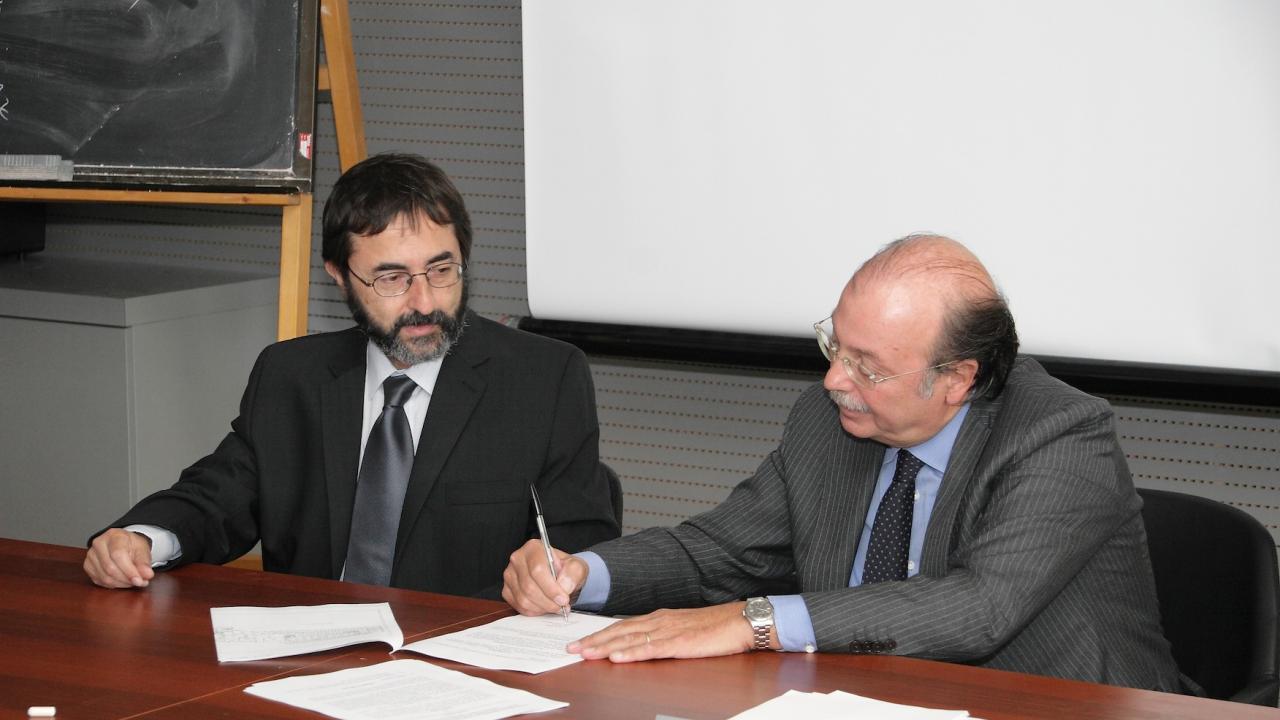
With its operational capacity of 130 TeraFlop (one TeraFlop is equal to a million million operations per second) and an archiving capacity of about 200 TeraBytes, for a total of 32 million computing hours a year, the new High Performance Computing (HPC) cluster (a supercomputer for scientific research), installed at ICTP will be the second most powerful computing centre in Italy. It will be housed at the old SISSA building in Via Beirut No. 2-4 in Trieste. Initially, the cluster will be available for use by the research groups of SISSA and ICTP, and later, for use by third parties after agreements are in place.
To mark the official launch of the HPC, today, 13 July, the Director of ICTP Fernando Quevedo and the Director of SISSA Guido Martinelli signed a joint agreement, which is valid for nine years. A technical and scientific committee composed of four members appointed by SISSA, four members appointed by ICTP and a chairperson will see to the implementation of the plan.
"High performance scientific computing," says Martinelli "is now an indispensable tool both for basic science and for the innumerable industrial and technological applications, not only in industrialized countries but also in the developing countries". The following are a few among the many fields that HPC can be applied to: high-energy physics and astrophysics, condensed matter physics, statistical mechanics, computational biology, neurosciences, applied mathematics, climatology, Earth sciences, and biomedicine.
"Both SISSA and ICTP consider this activity one of their strengths. The structure, which should be completed by the summer of 2013, will spread over a surface of 400 sq. m and will cost a total two million Euros," says Martinelli.
"This initiative not only strengthens the collaboration between our two institutions but also benefits the scientists from developing countries who visit ICTP every year," says Quevedo. "Thanks to the acquired knowledge, they will be able to enhance their experiences and capabilities, thereby closing the gap that still separates their countries from the advanced ones," he adds.
Renovations at the old SISSA building, funded by SISSA, are in the final stages, and what remains is boosting the power infrastructure for the equipment to function. A new agreement has already been drafted between SISSA, ICTP, Sincrotrone Trieste and the universities of Trieste and Udine for a project based on sustainable energy sources. An agreement with the Italian National Institute of Nuclear Physics (INFN) in Pisa has been signed for the construction of the equipment.
The new computing cluster will offer the opportunity to create yet another network of scientists who, can broaden its applications, positively impacting businesses and institutions and, likely, the creation of new spin-off projects.
Moreover, the launch of a new international Master's in HPC for Science and Technology is in the pipeline. It will be the only one in Italy, managed jointly with ICTP, and closely related to the PhD curricula in physics, mathematics and neurosciences currently offered by SISSA.
















